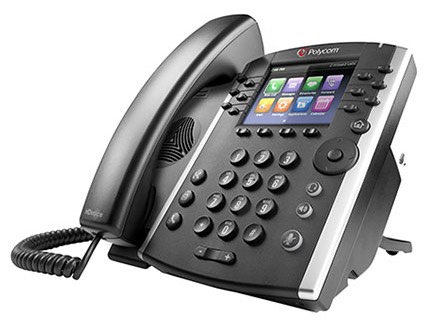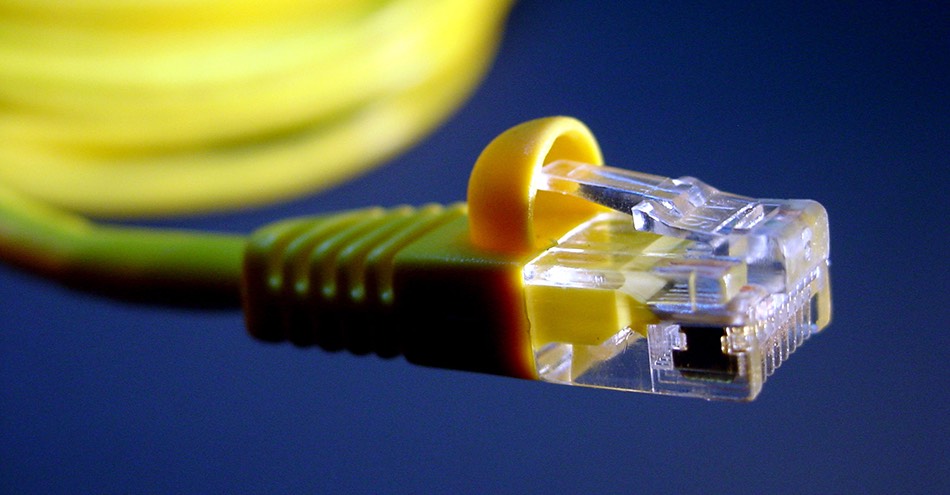The Six Most Common Concerns about VoIP Phone Systems Businesses Have
These are the problems to know when switching to a VoIP phone system.
Many local business people still remain resistant and fearful to VoIP phone technology at their business despite their significant cost savings and broader functionality than older, traditional premise- based phone systems.
Sometimes I struggle to wonder why. VoIP phone systems at business have been around for many years, allowing users to avoid long-distance and international telephone charges, and providing them with more powerful tools for end users and phone intelligence than old traditional systems.
When it first emerged about 12 years ago, VoIP system's performance was less than satisfactory. The quality of VoIP systems and the call quality couldn’t match that of analog phone lines and T1 voice circuits. This really was no surprise since traditional phone carriers had a century head start—not to mention monopoly protection— to perfect their technology.
But things have changed.
As you can expect, VoIP services have matured considerably over the last 12 years. We, and others in the VoIP industry have figured out to not only make it work, but make it work better than traditional systems. Still, may folks looking into a VoIP system have legitimate concerns about making the switch, and these tend to be the biggest six issues we hear voiced by our clients and customers.
I can't switch to a VoIP system at my business because I'm stuck in my current carrier's contract!

If you don't know when your contract ends, or don't have a copy of your agreement kicking around, the only way you can find out is by getting a hold of them and asking them. This is information you are entitled to, so don't accept any evasive answers.
Once you do find out when your contract's up, plan your escape.
Even before you've decided to switch phone service providers, send a letter requesting to your current provider to be put on a month to month agreement when the contract is up. Ideally, you should do this 60 to 90 days in advance of the end of the contract.
Additionally, ask for the original contract. Another proactive step you can take is to request the original signed agreement. If your current provider is trying to automatically extend the term, unless they can provide the original 2006 signed agreement, you can fight the extension they are saying you must accept. It gives you more leverage to leave the contract without penalty.
But what if your contract's not up for another year or two, but you want to upgrade to VoIP sooner? This is a legitimate concern as some agreements renew on an annual basis, while some are up to two or three years long. Let’s say you have a 30-person system and the early termination fee (ETF) is $15,000. If your cancellation fee is that high, it may warrant holding off on migrating to VoIP phone lines.
Here's a simple solution that can be readily available under the right circumstance.
Look for a buyout from a VoIP provider.
Unlike the old monopoly days of Ma Bell, you now have competition among dozens of providers, which works in your favor. It's not uncommon for carriers who are eager to get you and your business to buy out your contract by paying the early termination fee.
The point I'm trying to make is just because you're in the middle of a contract, don't think it's a death sentence and you're stuck. You have options, especially if you're looking at working with a local or regional VoIP provider.
Is the quality of a VoIP phone system any good?
We all know someone who's constantly dealing with terrible call quality. Maybe it's a bad Bluetooth in a car, maybe it's a desktop phone with a bad wire. Point is, the call quality is important, especially for organizations that depend on their phone system.
That's not the case with VoIP systems. Let me be crystal clear. The call quality on a properly installed & maintained VoIP system is outstanding.
If you're currently dealing with bad quality, it's probably because of one of these issues:
- Your internet connection is not sufficient. Sometimes Comcast or Verizon or Cablevision are providing poor signals, or you're using a connection which isn't strong enough for a VoIP system. The quality of the internet you use does make a difference.
- You're sharing the wired connection with a computer (this is big NO NO). If your computer & VoIP phones are sharing the same wiring, you will experience computer & IT performance related issues. We tend to see this with installers & IT professionals who like to cut corners. It's a simple fix.
- The firewall or Network Switch needs to be updated. It could be anything from the router to a network switch, but if you're not using good, current equipment, you could experience quality issues.
- Your VoIP provider employs cost-cutting practices. This is completely out of your hands, and it’s a common problem with the "low-cost" VoIP providers. When you shop on price, you end up paying more than you bargained for.
It's bad enough if my phone line goes dead. What happens to my VoIP phone system if my internet goes down?
This is a real simple problem to fix. In fact, we hear about it constantly, and have addressed the issue in a different blog.
The short answer is it's not a problem, and with a VoIP phone system, you'll always be able to use the phone at your business, even if your internet goes down.
To learn more, check out what happens to my VoIP system if the internet goes down at my business?
My employees are reluctant to change.

I get it. I get in rhythms too and don't like to have to deal with a new change out of nowhere. Unless, it's a change for the better, which is virtually always the case with upgrading to a VoIP phone system at a business.
The problem is simple: change is uncomfortable at first for people. They get in habits, they get used to their phones, and they don't want to change them. It's completely understandable. Many folks have a hard time even understanding what is a VoIP phone system, let alone are ready to learn a new piece of technology. But let's address a few key reasons why people are hesitant to change.
Instead of focusing on why people don't want to change, here's the talking points we usually bring up when we discuss why you should embrace change.
- The systems are almost identical at this point. Your phone calls will sound the same. Your phone will look similar. A traditional system and a new VoIP phone system will look, feel, and act the same way.
- The features of VoIP systems blow traditional systems out of the water. Hosted VoIP phone systems have robust features such as analytics & metrics, real-time monitoring capabilities, disaster avoidance, call recording, the availability to switch seamlessly from a desktop phone to a mobile phone to a softphone on a computer, just to name a few.
- Training on a new system is easier than ever. From training videos to screen sharing support to local technicians, VoIP providers (like us here at TDS) providing training on new systems ensuring you and your staff are up to speed and more than comfortable using the new system. A local company should provide on-site end-user training at your location with real humans, something nationally-based VoIP providers typically downplay or avoid due to geographic challenges. The human touch is critical to helping staff grasp new technology.
I can't afford any downtime when switching to a new phone system.
Don't worry about it, because there usually is none.
The porting of your phone number from one provider to another is scheduled in advanced, usually around two weeks ahead of time. After preparations are made, actually releasing a number from the losing carrier to the new carrier is an instantaneous event, so there is no downtime. And yes, you can keep all your existing phone numbers.
But, there can be delays. I don't want to overpromise the system here, but there are options to ensure there's no down time.
For example, when switching away from your old carrier, be aware that some carriers are more difficult to deal with than others and will reject ports. Don’t worry. At worst it just means you have to keep your old setup for a little longer. The overlap virtually eliminates downtime. This usually takes around another ten business days or less.
In extreme cases, porting can be expedited when the ten day delay is unacceptable. For example, we had a customer who urgently need a new system because their old system failed, so we did something most people normally dread. We called Verizon!
We were able to expedite the process by contacting Verizon to explain the problem. They worked with us, helped us rectify the issues, and the customer got what they needed it, when they needed it.
As a last resort, when a port can’t be expedited, a remote call forward (RCF) can be used temporarily to forward calls to the new line.
Here's two semi-related issues to tack on here as well. First, if you have fire or burglar alarms, or a credit card line, we usually recommend keeping them on an analog line. It makes more sense to keep them as is instead of moving them to a digital solution.
The second issue is faxing. Well folks, if you haven't heard, fax machines are slowly going the way of the dinosaurs. When companies transition their telecom systems to a VoIP provider, they usually ditch the clunky old fax machine and use 'web-faxing'. You scan and send a fax via a web portal instead of a traditional fax machine, and the person on the other end never knows the difference. This eliminates the old 'fax line' and saves you money.
What about buyer's remorse? What if I don't love my new VoIP system?
Simple. If you don't want to keep our service, we'll figure something out. We're already advising you how to get out of your current contract, so we're clearly not going to try to make this a hard process to get out of another one, even if it's with us.
Buyer's remorse (from our end) is less costly than it used to be since a lot of the hardware used in a VoIP system can be reused or integrated into other systems.
What makes VoIP providers different from other telecom providers is their hardware tends to be non-proprietary. Meaning, you're not stuck using our router, our phones, and our modem to use your system. You can always keep your equipment and get a new VoIP provider.
Additionally, since VoIP can be more flexible and custom tailored to you and your organizations, we find that by working with your team, identifying your needs and current issues, and tailoring a solution specifically for you, you'll most likely end up with a system you're going to love.
Of course there's times when expectations fall short, or there's a communication breakdown, but things usually go pretty smooth and we normally keep our customers for a long, long time.
Regardless of who you end up hiring, we recommend you work with a local VoIP specialist who will meet with your team, understand how your phone system currently impacts your business, perform a site survey to evaluate your wiring, internet and IT hardware, perform a product demonstration, and give you a custom proposal. You’ll have a much better idea what you’re getting into, and surprises can be avoided.
The common concerns businesses have with VoIP phone systems are very avoidable
The point I really want to drive home is that VoIP is usually a better, more reliable, higher quality, and cheaper solution for many businesses.
I encourage you to really think and identify the reasons you're concerned with going with a VoIP system. Flesh out why you're apprehensive and do a little research. Contact a VoIP phone system expert, talk to their customers to learn how they're liking the product and service, shop around, and make sure you're getting straight talk from the person you're looking to hire.
Your company deserves the best possible solution to your needs, and if that's us, great. If it isn't, we completely understand. Either way, if you have questions about issues with VoIP service for a business, you can click here to contact us online, give me a shout directly at vin@tele-datasolutions.com, or touch base with me at 908-378-1218.
 By Vincent Finaldi
By Vincent Finaldi
Vice-President, Tele-Data Solutions
E-mail: vin@tele-datasolutions.com | Direct Line: (908) 378-1218
What brings me satisfaction is meeting with New Jersey–based businesses and genuinely helping them solve communication and business problems. As someone who has lived in New Jersey my entire life, I love working and playing here. I live in Morristown with my wife, Lisa, and root for the New York Giants.


